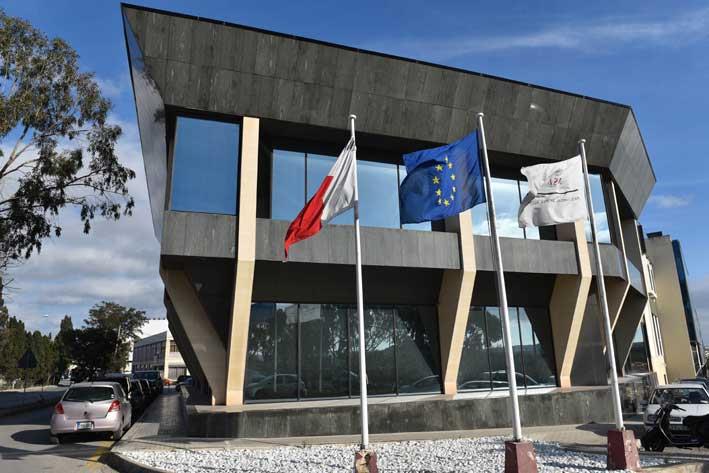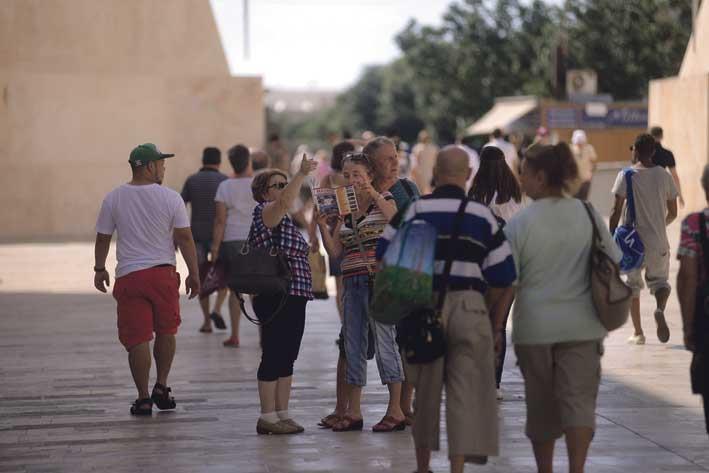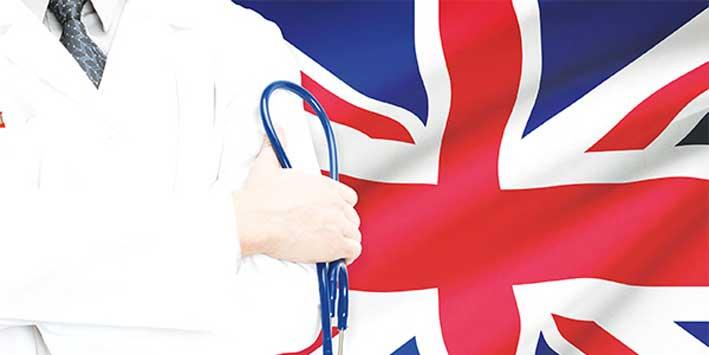A new 10-year residency permit for Britons residing in Malta is one of 36 action points that the government has in mind in case a no-deal Brexit scenario occurs next March.
Addressing a press conference on Wednesday, Prime Minister Joseph Muscat said that there were 36 action points in total, spanning across 13 ministries, which will be put into practice in the case of a no-deal Brexit. 10 of these action plans touch on various ministries simultaneously whilst there are no less than 82 laws which will need to be examined and possibly amended in the case of a no-deal Brexit, Muscat said.
The measures look at various matters, such as residency, customs procedures, connectivity and the health sector.
Backed by Deputy Prime Minister Chris Fearne, EU Affairs Minister Helena Dalli, Parliamentary Secretary Julia Farrugia Portelli and head of civil service Mario Cutajar, Muscat announced measures which look at various matters, such as residency, customs procedures, connectivity and the health sector, whilst also ensuring that Malta becomes the most “UK-friendly” country in the EU after Brexit.
This being said, Muscat meanwhile remained behind Jean-Claude Juncker and Donald Tusk, saying that the Brexit deal offered to embattled British Prime Minister Theresa May should not be re-negotiated, despite it being shot down by an historic margin in the House of Commons last week. May, whose government survived a vote of no confidence last week as well, is expected to bring table a ‘Plan B’ which looks a lot like what ‘Plan A’ was in the House of Commons next week.
The action points are various and relate to matters decided at a European level and other matters which have to be ironed out at a national level.

Preparations at EU Level: Malta taking ‘active role’ in connectivity, financial services sectors
There are various concerns and sectors which are the competency of the European Commission, Muscat said. However, Malta is taking an active role is some sectors – especially that relating to travel and connectivity, and that relating to the financial services sector.
In the case of the former, the government was involved in looking at ways to retain air connectivity between the UK and the rest of Europe in the case of a no-deal Brexit whilst also keeping a close eye on legislation which could impose a visa for UK citizens travelling into the EU.
Malta was also actively involved in determining regulation in the financial services so to, Muscat explained, mitigate risks such as the UK have a disproportionate advantage over EU countries in this sector. He said that it was also important that the EU retains alignment with London’s financial centre as it remains one of the magnets in the global financing world.

Residency: All British citizens living in Malta to apply for new 10-year residence permit
Perhaps most notably, Muscat announced that all British citizens living in Malta – around 13,000 – will have to apply for a new residency permit, a decision reached with the backing of the British government itself. The application for the permit will be free of charge and will be valid for 10 years. These citizens already living in Malta prior to 29 March – which is effectively D-Day for Brexit – will receive a special status identifying them as persons who had taken up residence in Malta when their country of origin was still part of the EU and retaining all their previous rights.
This will also apply to those British citizens married to their Maltese partners, who after five years can apply for Maltese citizenship. This process will be retained even in the case of a no-deal Brexit and Muscat, when asked by this newsroom, noted that the amount of citizenship applications submitted by British nationals had doubled in the last two years.
Meanwhile, those who, in the case of no deal Brexit, come to live in Malta after 29 March 2019 will also be able to apply for a 10 year residency permit. Under this permit they will be place in their own classification as opposed to being considered as third-country nationals.
The length of the validity of the residence permits – which is unprecedented given that most residency permits remain valid for between three and five years – is such so that all British citizens will be able to have “peace of mind” that their rights in Malta wouldn’t change or be impinged on, Muscat said.
Furthermore, Cabinet will be proposing that, in the case of a no-deal Brexit, British citizens be allowed to vote in local elections.
“All British citizens living in Malta have nothing to worry about even in the case of a no-deal Brexit”, Muscat said before adding that the government wanted to make the bureaucratic process that was necessary in the case of a no-deal Brexit as smooth and cost-less as possible.

Health: Malta will retain all important 1975 bilateral convention with UK
The most welcome news from Muscat’s speech for the health sector was that that in the case of a no-deal Brexit, and with the blessing of the European Commission, the Healthcare Convention signed between Malta and the UK in 1975 would remain in full force.
This convention ensures that, amongst other measures, British citizens temporarily residing in Malta are entitled to receive treatment on the same level as Maltese if it is needed, whilst Maltese citizens temporarily residing in the UK are, similarly, entitled to receive treatment on the same level as UK citizens if it is required
The government has also made an exhaustive list identifying every medicine that is sourced from the UK and, in view of the fact that a no-deal Brexit could lead to problems in importation, had identified a list of alternative suppliers outside of the UK whilst also cautiously stockpiling on some medicinal supplies.
Airport logistics: MTA working to ensure that tourism numbers remain steady
A no deal scenario, Muscat explained, will bring a number of challenges for a comparatively small airport such as Malta International Airport mostly due to the logistics needed to deal with the increase in border checks required. The Prime Minister said that the government was working hand in hand with the European Commission to work on the idea of having checks on UK citizens conjoined with those coming from countries which are not in the EU but are in the European Economic Area (EEA) or European Free Trade Area (EFTA).
He also said that the Malta Tourism Authority along with the ministry for tourism is working on a campaign, which started mid-way through last year, to anticipate the “shock” that there will no doubt be in the British system as consumer confidence and currency rates could have an effect on the amount of people travelling on holiday. Muscat said that the MTA was working to make sure that the number of tourists coming to Malta from the UK, even after a no-deal Brexit, remains stable.
Customs: Customs Department will have up to 7,000 extra declarations per week
The Customs department will, in the case of a no-deal Brexit, face up to 7,000 extra declarations per week due to the level of importation from the UK across various means of transport and postage. He explained that every week the customs department will have to deal with 25 extra cargo trailers, 30 extra full load containers, around 100 air freight consignments and 5,500 parcels every single week all coming from the UK.
Simulations carried out have showed that the department’s IT system would cope with the increased workload that this would cause but added that the department would require the proper resources to be able to face these challenges to the full.
Websites and outreach campaigns will also be launched soon to explain to the commercial community what would happen in the eventuality of a no-deal Brexit and what businesses are expected to do.
New Brexit helpline in Malta and the UK to launch on Monday
As of Monday, a new helpline will be launched both in Malta and in the United Kingdom for all issues related to Brexit. Whilst it cannot predict the future, Muscat said, but it is a facility available to get to know what would happen in the case of different Brexit scenarios.
Muscat also appealed to Maltese citizens living in the UK to identify themselves with the High Commission in Britain so to make all information more readily available.